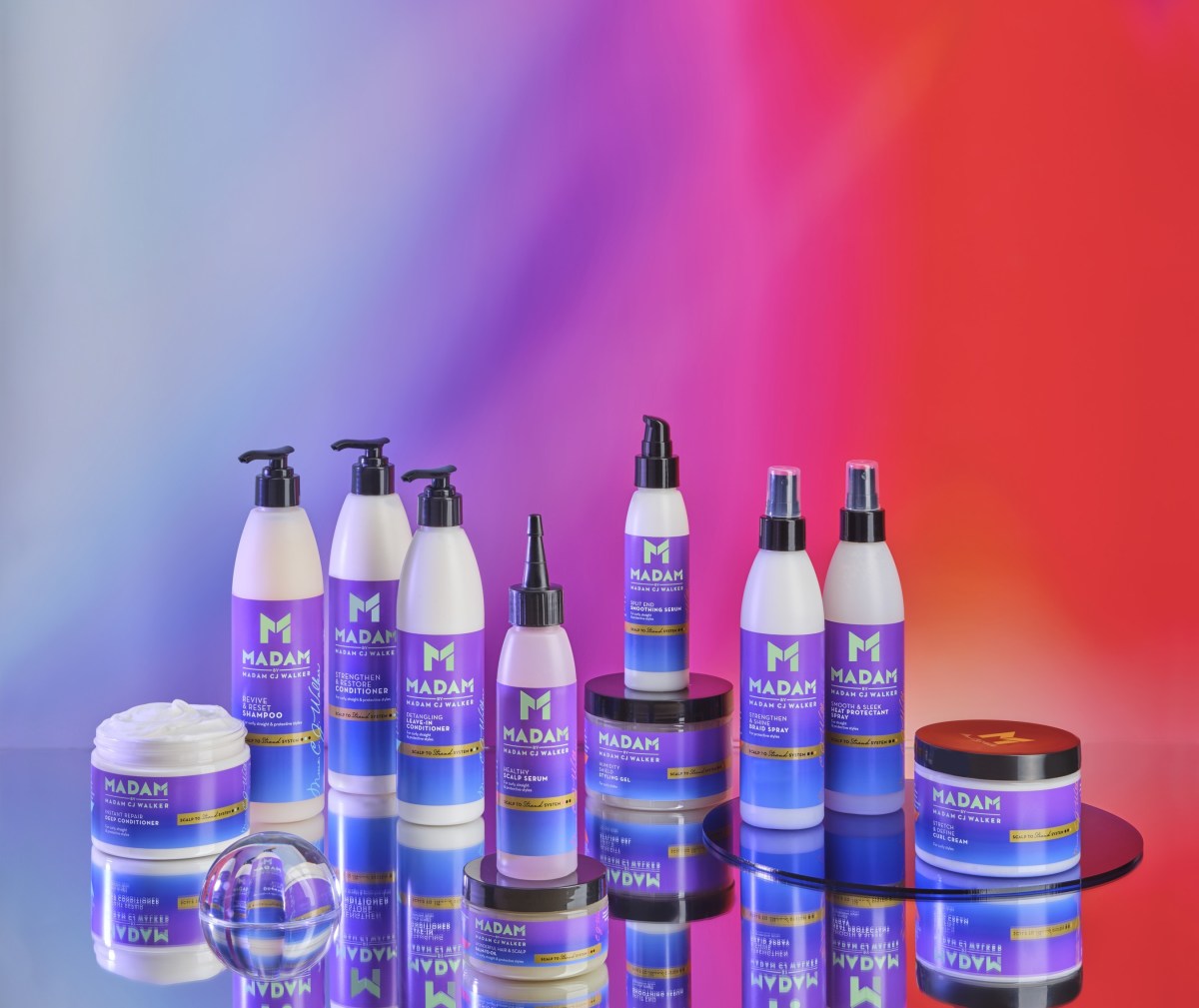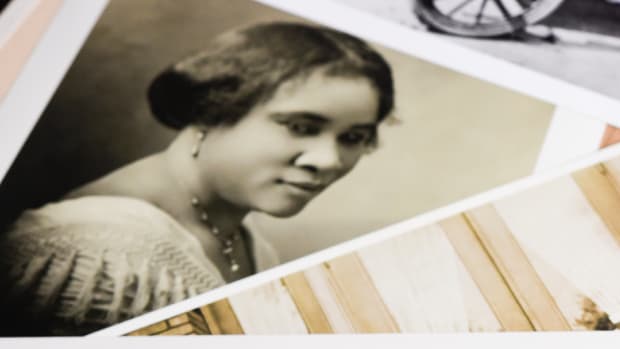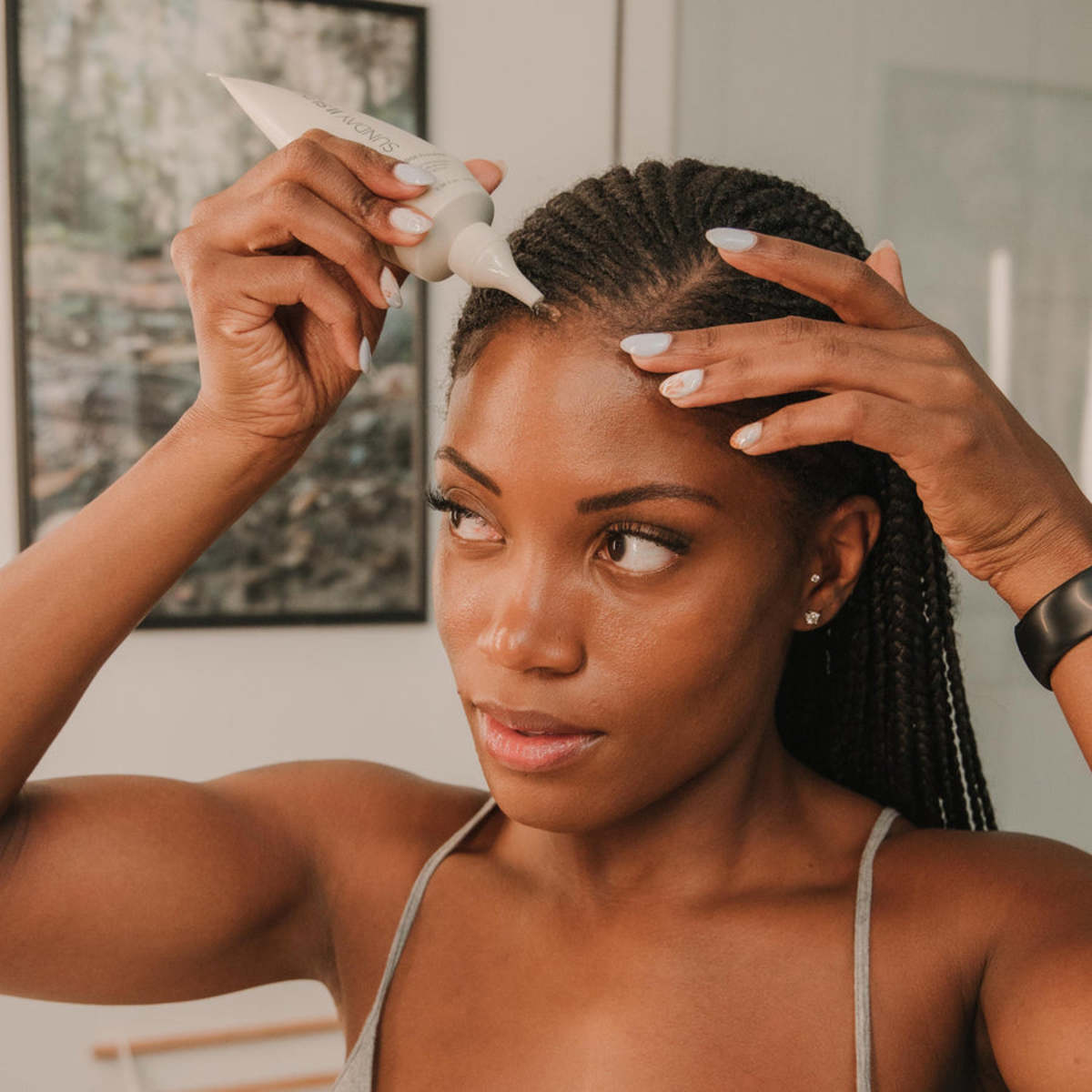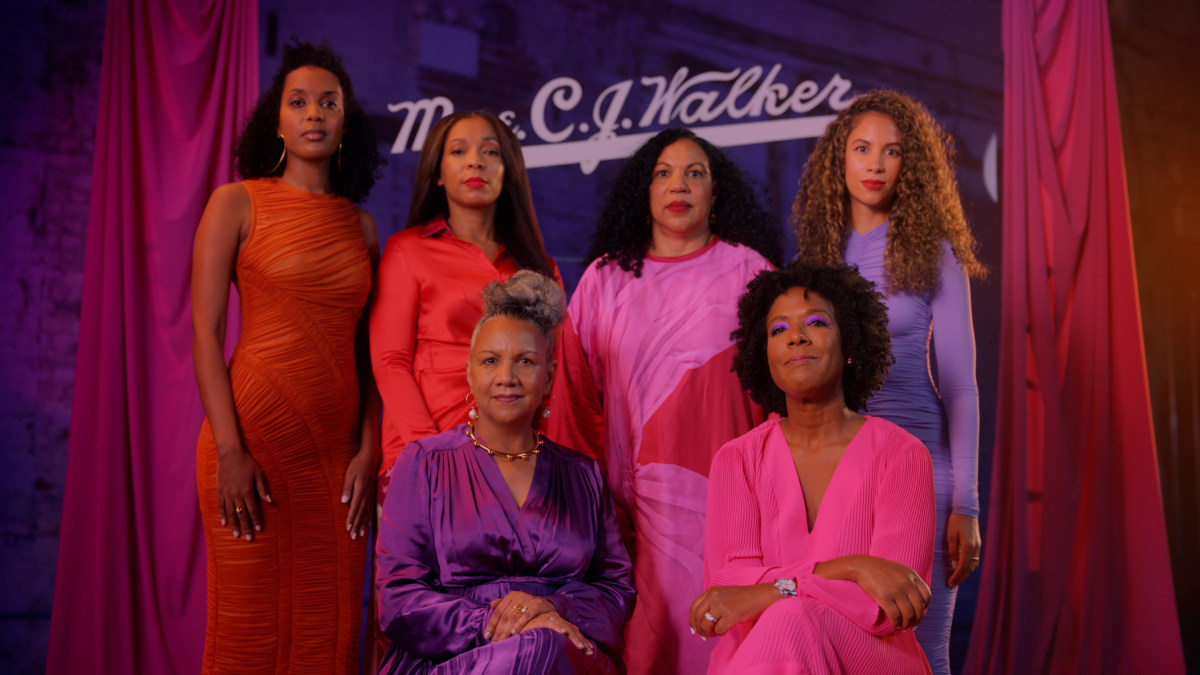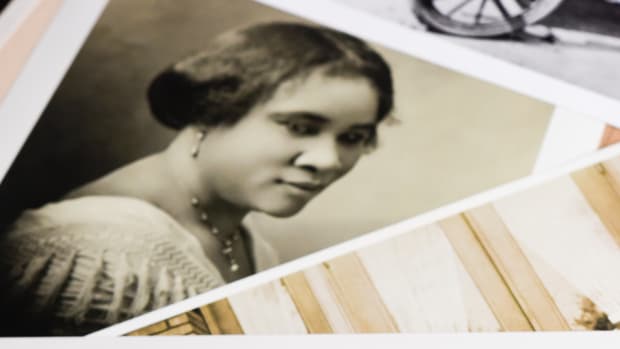
Archival photos of Madam C.J. Walker.
Photo: Sarah L. Voisin/The Washington Post via Getty Images
Madam C.J. Walker was a beauty entrepreneur more than a century ago, but her influence continues to loom large in the industry. Known most widely for becoming the country's first female self-made millionaire, through the namesake hair-care company she pioneered in the early 1900s, Walker set the standard for championing product innovation and Black community advancement with equal importance.
Her impact has been recognized and celebrated widely for generations; by museums, books, a Netflix limited series and the countless Black beauty founders that followed in her footsteps (including not-insignificant names like Tracee Ellis Ross and Lisa Price of Carol's Daughter). Walker's legacy most recently, however, has been reinvigorated through familial ties in the hair-care aisle.
In February 2022, the entrepreneur's great-great granddaughter, author and historian A'Lelia Bundles, partnered with Sundial Brands to launch MADAM by MCJW. Its mission is to celebrate Walker's trailblazing legacy, from product to cultural impact, for the next generation. The line, available exclusively at Walmart, delivers a range of 11 products all priced under $10, with an emphasis on healthy scalp care and versatile styling options.
"For so many of us, Madam C.J. Walker has been an integral part of our lives and our family's lives before us," Cara Sabin, CEO of Sundial Brands, tells Fashionista. "So first and foremost, the goal in launching this new brand was to pay homage to Madam C.J. Walker by staying true to her legacy, the brand's history, and Walker's values of women's empowerment, confidence and entrepreneurship."
It's a consistent theme in the retelling and remembrance of Walker's legacy, looking beyond the products themselves to the meaning that beauty and self-care hold within the Black community. The history of it, the emotional and cultural implications, and the self-sufficiency and financial liberation it provides those that choose to make a living around it, past and present.
"It was much later when I began to do extensive research for my biographies of Madam Walker that I began to truly understand the magnitude of her place in history," says Bundles. "In addition to being a pioneer of the modern hair-care industry, she was a philanthropist who supported Black institutions and an activist who spoke out about social justice issues. It was important that she created products specifically for Black women, but equally important that she provided economic opportunity for her sales agents at a time when employment options were very limited for Black women."
These facets of Walker's life's work — her commitment to the very real people in her community, whether they were using her products or not — aren't always captured alongside her financial successes. They are, however, what countless Black beauty founders continue to be inspired by, and a vivid reflection of the ways in which community is intrinsic to the fabric of Black beauty innovation.
"I've been inspired over the years by all the many Black entrepreneurs from Stephen Smith to Madam C.J. Walker because of their sheer resilience, grit and work ethic," says Keenan Beasley, founder of Sunday ll Sunday. "To overcome the harshness of the world in those times takes unbelievable strength."
Recommended Articles
Sunday ll Sunday launched in May 2020, amid the start of the pandemic, with a people-first mission to remove the barrier to exercise for folks with textured hair by creating products designed to remove sweat and replenish the hair without using water. For Beasley, the concept for the brand came from the very real and startling toll that hair, and lack of options to care for it, were taking on the health and wellness of Black folks.
"Prior to founding Sunday ll Sunday, I saw a stat that 40% of Black women weren't exercising because of their hair and that changed everything for me," he explains. "The fact that a huge population of women were compromising on both their health and enjoyment because of their hair was simply something I had to help solve. Growing up, the women in my life were so active and truly inspired me each and every day," he adds, sharing that his mother, sister and nieces were (and are) all athletes in their own right.
For Julian Addo, founder of hair-care brand Adwoa Beauty, the question of who (or what) served as the inspiration to embark on her founder and ownership journey is a "troublesome" one. "Everybody [Black] was my inspiration and nobody specifically, equally," she tells Fashionista.
Addo's response is fitting for someone who grew up at the center of Black hair and expression in the '80s and '90s, having worked at a hair salon at just 14 years old, and going on to open her own salon, New York's Creations Plus, at the age of 21. "Hair has been constant in my life," she recalls. "I always saw, heard, and spoke of the beauty and the art form of Black hair. I was always surrounded by images and examples of cool Black women and men who had their hair laid every weekend growing up in NYC."
When she returned to the hair industry in 2012, the landscape had shifted tremendously — Addo saw just how many young Black women and men were not only entering the space, but owning it. She saw an opportunity to modernize the category from the inside out, and took it.
"It didn't feel like the industry had evolved outside of the now more naturally derived formulations we were creating. It felt very stale and old," says Addo. "I created Adwoa Beauty to bring modernization to the textured hair market with an emphasis on Black consumers. I wanted to merge natural ingredients with editorial beauty so that the world can see how amazing textured hair is."
Much like Madam C.J. Walker did more than 100 years ago with the Wonderful Hair Grower Elixir — and what her great-great granddaughter is carrying on with Sundial at MADAM — today's most promising Black beauty brands are prioritizing innovation and solutions with product while mirroring the beauty of their community right back to them.
"Having products that are designed specifically for us and knowing that someone cares enough about our needs to create something just for us can make us feel seen," says Bundles. "As Black women, we are too often told that our natural hair is not enough, that we ourselves are not enough. With more and more Black hair-care brands launching and more Black women of power confidently rocking their textured hair, we see the influence of Madam C. J. Walker continues to have on the beauty industry."
Never miss the latest fashion industry news. Sign up for the Fashionista daily newsletter.

